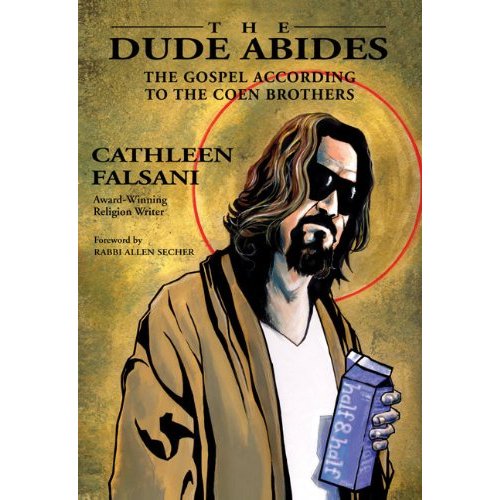 Cathleen Falsani’s latest book, “The Dude Abides: the Gospel According to the Coen Brothers,” caused me to notice something strange about Joel and Ethan Coen’s movies. Though I admire every one of their films–almost (what, the Alec Guinness version of “The Ladykillers” wasn’t good enough?), and I even like the roundly critically despised “Intolerable Cruelty,” I can’t for the life of me remember what happens in any of them.
Cathleen Falsani’s latest book, “The Dude Abides: the Gospel According to the Coen Brothers,” caused me to notice something strange about Joel and Ethan Coen’s movies. Though I admire every one of their films–almost (what, the Alec Guinness version of “The Ladykillers” wasn’t good enough?), and I even like the roundly critically despised “Intolerable Cruelty,” I can’t for the life of me remember what happens in any of them.
“Raising Arizona”? Something about stealing a baby and Nic Cage screaming his head off. “The Big Lebowski”? My favorite! I can quote lines from memory. Can’t tell you a single plot point.
I’ve always seen this as a virtue of the movies. Tthe Coens’ antic capers concern so much more than what happens–they celebrate character acting, they spoof Hollywood and various movie genres. Most of all they catch all of us humans hamming it up, pilfering love and glory and vitality from each other in order to survive on our own terms, only to find that nothing is on our terms.
I’m grateful, then, for Falsani’s book. Falsani, religion columnist for the Chicago Sun-Times, has capsulized each of the two brothers’ 14 films–the latest, “A Serious Man,” appears in theaters Oct. 2. Each capsule is followed by a short, usually Christian-oriented summary of the moral and spiritual dimensions of the movies.
Falsani never tortures the movies’ plots to squeeze a spiritual connection out of them. The lessons she draws are often quite simple: “Be kind,” she begins her analysis of “Lebowski”; the overarching theme of their breakthrough film, “Fargo,” she says, is “love wins.” Yet some of the lowest Coen farces, like “O Brother, Where Art Thou?” yield the most sophisticated themes.
Despite an introduction by a rabbi, the book’s “gospel” tag feels too constricting, given that the Coens are two secular Jews from Minnesota. Falsani might have spent more time considering what the boys took from the Torah, or to discerning the effect of their being immersed in a predominantly Catholic and Lutheran culture. (Whether her publisher, the Christian house Zondervan, would be interested in that broad an inquiry is another matter.)
Falsani has done me a huge favor, nonetheless, by getting me past, “What happened?” For fans of the Coens’ oeuvre, as well as those who wonder what the fuss is about, “The Dude Abides” is full of answers, and better questions.


